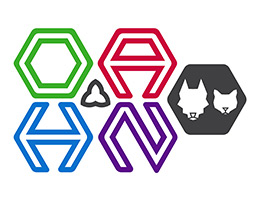OAHN Companion Animal Research Project: Whiteboard Rabies Video

Project Lead: Dr. Maureen Anderson
Collaborators: OAHN Companion Animal Network
Executive Summary
Canada has a long-standing requirement for rabies vaccination of most categories of dogs and cats being imported from countries not considered free of non-bat rabies. While this requirement helps protect dogs and cats from rabies infection should they be exposed to endemic wildlife rabies that is present in Canada, it does little to prevent rabies in animals that were exposed to the virus prior to vaccination and importation. Two cases (July 2021 and January 2022) of rabies in dogs recently imported into Ontario, along with ongoing pressure from public health agencies for more regulatory control of canine importation, lead to a new measure by the Canadian Food Inspection Agency (CFIA) prohibiting the importation of all commercial dogs from countries considered high-risk for canine rabies, effective September 28, 2022 (World Rabies Day).
Many members of the public and organizations involved in canine importation do not understand the rabies disease process, risk periods for virus shedding, and how and when rabies vaccination is or is not effective at preventing infection. Providing an explanation of these nuances in a format that can be relatively easily understood by members of the public is key to garnering support for and compliance with current and future canine import requirements regarding rabies, which helps support both animal health and public health efforts to reduce the risks from this deadly disease. The companion animal OAHN network therefore undertook a project to produce a short whiteboard video on this topic.
For more information about rabies in Ontario:
- Rabies in Ontario (Ministry of Natural Resources and Forestry): https://www.ontario.ca/page/rabies
- Interactive Ontario rabies surveillance map: https://www.ontario.ca/page/wildlife-rabies-outbreaks-and-control-operations#section-1
- OAHN veterinary rabies resource page (OAHN login required): https://www.oahn.ca/resources/rabies-resource-page-for-veterinarians/ (Veterinarians and technicians can sign up for OAHN for free! Visit www.oahn.ca)
- Rabies information for Ontario veterinarians (Ontario Ministry of Agriculture, Food and Rural Affairs): http://omafra.gov.on.ca/english/food/inspection/ahw/rabies.htm#14
- Ontario Health Protection and Promotion Act (R.R.O 1990) regulations:
- Communicable diseases – General (Reg. 557): https://www.ontario.ca/laws/regulation/900557
- Rabies immunization (Reg. 567): https://www.ontario.ca/laws/regulation/900567
- Canadian Food Inspection Agency:
- Information on owning, importing and travelling with dogs
https://inspection.canada.ca/importing-food-plants-or-animals/pets/dogs/eng/1594047452277/1594047452779 - Rabies cases in Canada
https://inspection.canada.ca/animal-health/terrestrial-animals/diseases/reportable/rabies/rabies-in-canada/eng/1356156989919/1356157139999
- Information on owning, importing and travelling with dogs

